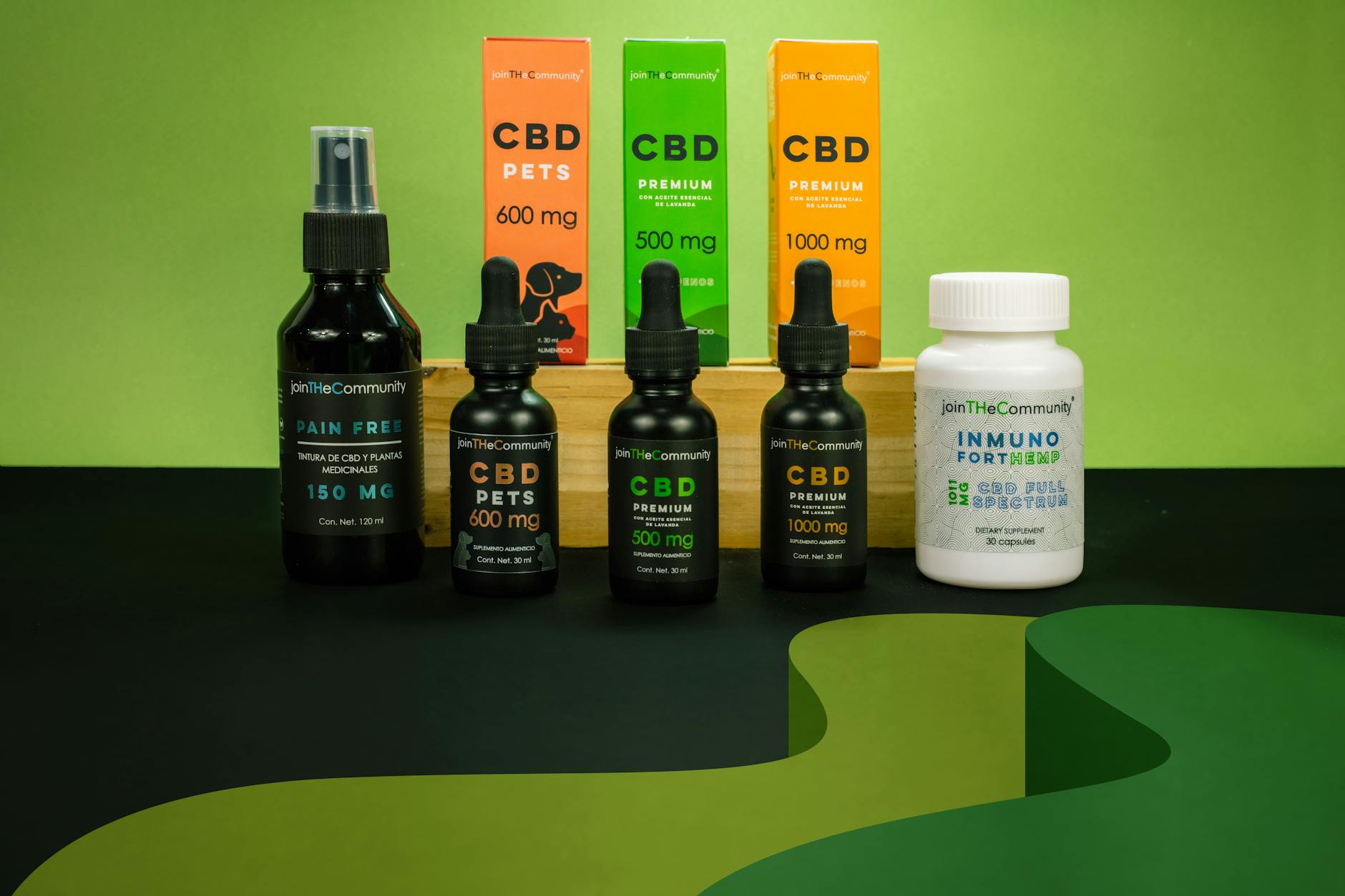Top Supplements to Boost Your Dog’s Health and Energy Levels

Top Supplements to Boost Your Dog’s Health and Energy Levels. Every dog owner wants their furry friend to thrive—strong, healthy, and energetic. While a balanced diet forms the foundation of canine health, sometimes even the best dog food might not be enough to meet every need.
That’s where supplements can make a difference. Whether promoting joint health or providing an energy boost for active breeds, the right supplements can support your dog’s well-being at every stage of life.
Understanding Dog Supplements
Dog supplements aren’t just trendy; they’re often essential for ensuring pets live their healthiest lives. Whether you’re addressing specific health concerns or giving your furry friend an extra boost, supplements can bridge nutritional gaps and improve overall well-being. Below, let’s break down what you should know about these game-changing additions to your dog’s routine.
Types of Dog Supplements
Dog supplements span several categories, each with unique benefits tailored to different needs. Here’s a breakdown of the most common types:
Vitamins and Minerals: Think of these as the building blocks of health. Some dogs, especially those with specific medical conditions or on restricted diets, may lack vital nutrients like vitamin D, B-complex vitamins, or essential minerals. These deficiencies can lead to issues like brittle bones or sluggish energy levels. Read more about the key vitamins dogs need here.
Fatty Acids: Omega-3 and omega-6 fatty acids are key players in keeping your dog’s skin healthy and coat shiny. They also reduce inflammation, especially for dogs suffering from arthritis or allergies. Consider options like salmon oil, which also boosts joint and heart health.
Probiotics and Digestive Aids: If your pup struggles with tummy troubles or diarrhea, probiotics can help. They restore good bacteria in their gut, supporting smoother digestion.
- Joint Support (e.g., Glucosamine and Chondroitin): Older dogs or breeds prone to joint issues benefit significantly
from supplements targeting joint health. These help maintain cartilage, reduce stiffness, and improve mobility. Explore how supplements cater to different needs on our blog.
By understanding these categories, you can choose a solution tailored to your dog’s age, breed, and lifestyle needs.
How Supplements Work
Supplements aren’t a magic fix, but they play a decisive role in supporting a dog’s body at the cellular level. Let’s break it down:
Filling Nutritional Gaps: Supplements deliver concentrated doses of nutrients that may be missing from your dog’s diet. For example, vitamin D ensures proper calcium absorption, which is vital for strong bones.
Boosting Functionality: Fatty acids, like omega-3s, help reduce joint inflammation and improve coat quality. Simple yet impactful.
- Repair and Maintenance: Ingredients like glucosamine and chondroitin cushion joints and repair cartilage over time are particularly helpful for aging or active dogs.
Enhancing Immunity and Digestion: Probiotics improve gut health, enabling better nutrient absorption and a sturdier immune system.
Want to dive deeper? Check out how supplements support canine health here.
Dog supplements act like a well-tuned engine, enhancing your pet’s existing systems. Pair them with a proper diet, and you’ll set the stage for lifelong health.
Use this knowledge to guide your choice of supplements and give your dog the support they deserve.

Photo by RR Medicinals.
Best Supplements for Joint Health
Joint health is critical for your dog’s mobility and comfort, especially as they age. Supporting healthy joints means your pup can stay active, chase their favorite ball, and enjoy long walks by your side without pain or stiffness. Let’s explore some of the top supplements for supporting joint health.
Glucosamine and Chondroitin

Photo by Saul Rivera.
Glucosamine and chondroitin are two of the most widely recognized ingredients for joint support for dogs. Together, they act like a cushion for your dog’s joints by supporting cartilage repair and reducing joint breakdown. These ingredients can improve mobility, especially for dogs with arthritis or age-related stiffness.
- Glucosamine helps stimulate cartilage growth and can reduce joint inflammation.
- Chondroitin blocks enzymes that break down cartilage, slowing the progression of joint wear and tear.
These dynamic ingredients are worth considering as part of your dog’s daily care routine. You can check out Glucosamine for Dogs: Everything You Need to Know or A Guide to Glucosamine and Chondroitin for Dogs for more details.
Omega-3 Fatty Acids
Omega-3 fatty acids, often sourced from fish oil, are more than a trendy supplement. They work wonders for reducing inflammation throughout your dog’s body, including their joints. Incorporating Omega-3s into their diet effectively provides natural lubrication for their joints.
Key benefits include:
- Reduced joint inflammation for dogs with arthritis or other inflammatory conditions.
- Improved mobility and comfort during daily activities.
- Boosted overall joint health, which is essential for aging dogs.
Whether your dog is struggling with arthritis or showing early signs of joint discomfort, Omega-3s are a natural and effective solution. Interested in more information? Check out The Benefits of Omega-3 Fatty Acids for Dogs with Arthritis to learn how this supplement supports optimal joint health.
Best Joint Supplements For Dogs
Choosing the right supplement can feel overwhelming, but some products consistently stand out. If you’re unsure where to start, we suggest exploring our detailed guide on best dog joint supplements. This resource covers vet-approved options that provide maximum benefits for your dog.
From glucosamine-based chews to Omega-3-rich oils, supplements tailored to your dog’s age and needs can help them lead a comfortable, active life. These options can be game-changers for your pup’s well-being.
By keeping these supplements in mind, you can take proactive steps to ensure your dog’s joints remain happy and healthy. Remember, a happy dog is a healthy, mobile dog!
Supplements for Energy Boost
Ensuring your dog has enough energy to thrive depends heavily on proper nutrition and thoughtful supplementation. When their diet lacks essential nutrients, they can become lethargic or struggle to maintain their activity level. Incorporating the right supplements into their routine is necessary for a happy, healthy pup.
B Vitamins: How They Support Energy Metabolism
B vitamins are critical to maintaining high energy levels in your dog’s diet. These vitamins, especially B1 (thiamine) and B12, help your dog’s body convert food into usable energy. They also assist in cell regeneration, improving overall vitality.
B-complex vitamins can be a game-changer for dogs lacking energy or prone to fatigue. These essential nutrients regulate metabolism, enabling your pup to efficiently break down carbs and proteins. Without them, their energy levels—and eventually their overall health—might suffer.
Want to learn more about Vitamin B and its powerful benefits? Check this out.
Protein Supplements: Fuel for Active Dogs
Protein is the powerhouse nutrient for dogs, especially active or working breeds. It builds muscles, repairs tissues, and significantly improves overall strength and endurance. In short, it’s the fuel that keeps your dog moving.
Active pups require a diet enriched with high-quality proteins to match their energy demands. Protein supplements can be particularly beneficial for dogs with increased physical activity needs. Getting enough protein for dogs on the go ensures they maintain muscle mass while staying healthy and energized.
To better understand protein’s role in your dog’s diet, check out The Importance of Protein in Dog Food.
Top 5 High-Protein Dog Foods For Working Dogs
Choosing the right food can make all the difference for working dogs and active breeds. Feeding a high-protein diet supports their endurance and maintains peak muscle function. For pet owners looking for trusted options, we’ve got a reliable list curated just for you.
Discover the Top 5 High-Protein Dog Foods For Working Dogs. These recommendations ensure your pup gets the right mix to stay energized and active throughout the day.

Photo by Zen Chung.
Adding the right supplements to your dog’s diet can make a difference in their energy levels. Focus on nutrient-rich sources tailored to your pup’s needs, and you’ll see them thrive like never before.
Vitamins and Minerals for Overall Health
Ensuring your dog gets the right vitamins and minerals is essential to maintaining health and energy. These micronutrients play critical roles in supporting various bodily functions, from bolstering their immune system to keeping their skin, coat, and joints healthy. Let’s explore why specific vitamins and minerals should not be overlooked in your pet’s diet.
Vitamin E and C: Discuss Antioxidant Properties and Their Importance

Photo by Jonathan Borba.
Vitamin E and Vitamin C are two of the most potent antioxidants your dog needs. Antioxidants help combat oxidative stress—a condition where free radicals damage cells in the body. Think of them as your pup’s defense squad, protecting their cells like a sturdy shield.
- Vitamin E keeps skin healthy, supports a shiny coat, and boosts immunity.
- Vitamin C helps fight inflammation, supporting joint health and recovery. This is especially critical for aging dogs or breeds prone to arthritis.
These vitamins aren’t just boosters but essential team players in your dog’s overall system. By including foods or supplements rich in Vitamin E and C in their diet, you’re taking proactive steps to enhance their longevity and vitality. Want to dive deeper? Learn more about essential vitamins in pet food.
Zinc and Selenium: Detail the Role of These Minerals in Immune Function
Zinc and selenium might not be discussed as much, but they’re vital for keeping your dog’s immune system in top-notch condition. A strong immune system acts as your dog’s army, fighting infections and maintaining overall health.
- Zinc is key in wound healing and healthy skin and coat development. A zinc deficiency can lead to skin irritations and slower healing after injuries.
- Selenium works with Vitamin E to protect cells from oxidative stress and boost your pet’s immunity against illness.
Together, these minerals ensure your dog’s body functions smoothly even during stressful times, such as exposure to new environments or after undergoing physical activities. Check out this guide to vitamins and minerals for dogs for more insight.
By prioritizing these nutrients in a dog’s diet or supplement routine, pet owners set a solid foundation for their furry friend’s health. Remember: small steps like focusing on vitamins and minerals make a big difference in your dog’s energy and overall life quality!
Choosing the Right Supplements
Choosing the right supplements for your dog can feel like a daunting task. With so many options available, making informed decisions prioritizing their health and safety is crucial. Let’s break it down into manageable steps with guidance from experts.
Consulting with a Veterinarian

Photo by Kaboompics.com.
Before diving into the world of supplements, your first step should always involve consulting with your veterinarian. Why? Because no one knows your dog’s health history better than they do. Vets can identify specific deficiencies or conditions that could benefit from supplementation.
Here’s why their input is invaluable:
- Tailored Solutions: Not all supplements suit every dog. Your vet will recommend options tailored to your pet’s needs.
- Avoiding Risks: Some supplements may interact negatively with existing medications or conditions.
- Expert Advice: Veterinarians understand what works and can help you avoid wasting money on ineffective products.
Need more guidance on conversations with your vet? Check out this guide for insights into what to ask about supplements.
Reading Labels Effectively
Labels can be tricky, but they’re your first defense when choosing high-quality supplements. Knowing how to read them can help you make better decisions for your furry friend.
Here’s what to focus on:
- Active Ingredients: Look for scientifically supported ingredients like glucosamine for joints or probiotics for digestion.
- Dosages: Ensure recommended dosages align with your dog’s size and weight. Over-supplementation can be harmful.
- Additives: Avoid unnecessary fillers, artificial flavors, or preservatives that offer no health benefits.
- Certifications: Seek out products with third-party certifications to verify quality and safety.
Reading between the lines can save you from choosing inferior products. For more tips, explore this helpful guide.
By combining expert guidance with practical knowledge, you can ensure the supplements you choose contribute to your dog’s health rather than hindering it. These steps give you peace of mind while optimizing your pet’s well-being.
Potential Risks and Considerations
When it comes to giving your dog supplements, it’s not always smooth sailing. While supplements can provide many benefits, they may also carry risks if not used correctly. Understanding these potential pitfalls is essential to ensuring your furry friend stays happy and healthy.
Common Side Effects

Photo by Saul Rivera.
Like humans, dogs can experience side effects from supplements. These side effects might vary based on the type of supplement and your dog’s sensitivity. Some of the typical adverse reactions include:
- Gastrointestinal Issues: Supplements, especially those with high doses of vitamins or minerals, can cause vomiting or diarrhea.
- Allergic Reactions: Ingredients like fish oil or certain botanicals may trigger allergic responses in some dogs. Watch for symptoms like itching, swelling, or difficulty breathing.
- Toxicity from Overdosage: Too much of a good thing can be harmful. For instance, excess vitamin D may lead to increased calcium levels, potentially damaging organs. Learn more about supplement risks in this ASPCA guide on dangerous vitamins.
Side effects are not always immediate. Regular observation is crucial when introducing something new into their diet. If you notice unusual symptoms, stop the supplement and consult your vet immediately.
Interactions with Medications
Adding supplements to your dog’s diet might sound harmless, but they can interact with existing medications unexpectedly. This is especially important if your pup is undergoing treatment for chronic conditions like arthritis, heart disease, or allergies.
Some risks to consider:
- Reduced Efficacy: Supplements like calcium can hinder the absorption of antibiotics. This means your dog might not fully benefit from prescribed medication.
- Increased Toxin Levels: Supplements containing iron or vitamin A may exacerbate liver or kidney issues when combined with certain medications.
- Duplicate Effects: Taking joint supplements alongside prescribed anti-inflammatory drugs could lead to overdosing on similar active ingredients.
Always discuss new supplements with your veterinarian to avoid complications. They can assess whether a supplement is safe for your dog’s unique health profile. Check out how to navigate supplement-medication combinations with this Tufts Veterinary article on pet supplements.
While supplements can be a game-changer for your dog’s health, knowing the risks helps you make informed decisions. Explore our guide to dog nutrition and health for more tailored advice on nutrition and supplementation.
Frequently Asked Questions About Dog Supplements
Dog supplements might seem overwhelming, especially if you’re new. It’s normal to have questions about how they work, their benefits, and any potential concerns. To make things easier, we’ve compiled answers to some of dog owners’ most common questions about supplements.
Are Supplements Necessary for My Dog?
Supplements aren’t required for every dog, but they can be highly beneficial depending on your pup’s health. If your dog eats a well-balanced, vet-recommended diet, they may not need additional supplements. However, dogs with specific health needs (like joint pain or digestive issues) or nutritional deficiencies might benefit greatly.
Consulting with your vet is key to ensuring that you’re addressing the proper health concerns. Supplements are most effective as part of a tailored approach to your dog’s nutrition and overall care. Want to learn more about which dogs may need supplements? Check this detailed guide here.
How Do I Know If a Supplement Is Safe?
Safety is one of the biggest concerns for pet parents when choosing supplements. Always prioritize products tested by third-party organizations or certified by reputable bodies. These certifications often ensure quality, safety, and ingredient accuracy.
Here are key points to evaluate:
- Ingredient transparency: Opt for brands that list active ingredients and their purposes.
- No harmful fillers: Avoid products with artificial preservatives, colors, or unnecessary additives.
- Reputable brands: Check reviews, vet recommendations, or trusted sources.
For more information on identifying trustworthy supplements, look at this helpful FAQ resource.
Can I Give My Dog Human Supplements?
This is a vital question—and the answer is no. Human supplements often contain higher doses of vitamins and minerals that may harm dogs. Ingredients like zinc, iron, or xylitol are common in human health products but can be toxic to pets.
Stick with supplements explicitly formulated for dogs, as they are tailored to your pet’s unique nutritional requirements. To avoid potential risks, read this guide on what ingredients to avoid.
How Long Does It Take for Supplements To Work?
The effectiveness of supplements often depends on the type and your dog’s health condition. Joint health supplements, like those containing glucosamine, can take several weeks before improvements are noticeable. On the other hand, probiotics may show results within a few days of regular usage.
Be patient but observant. If the supplement isn’t providing noticeable benefits after an appropriate trial period, it’s worth discussing alternative options with your vet. For more information on timelines, check out our article on best joint supplements for dogs.
Can Puppies Take Supplements?
In most cases, puppies don’t need supplements if they eat high-quality food designed for growth and development. However, some puppies with specific needs (like large breeds prone to joint issues) might benefit from specific supplements like omega-3s or glucosamine.
Always consult with your vet before giving supplements to puppies. Their developing systems are sensitive, and the wrong supplement could do more harm than good. Check out this guide on puppy nutrition and care for expert advice.
Do Supplements Cause Side Effects?
While many supplements are safe when used properly, they can occasionally cause side effects, especially if dosages are incorrect. Common issues include:
- Diarrhea or upset stomach.
- Allergic reactions (itching, swelling).
- Toxicity from overdose (e.g., too much vitamin A or D).
Follow dosage instructions and closely monitor your dog’s response to minimize risks. If you notice adverse reactions, stop the supplement immediately and consult your vet. Learn more about common risks associated with supplements.
What Are the Most Commonly Recommended Dog Supplements?
Some supplements are recommended more frequently than others for their proven benefits:
- Glucosamine and Chondroitin: Joint health and mobility.
- Omega-3s (Fish Oil): Reducing inflammation and improving coat health.
- Probiotics: Better digestion and immune support.
- Multivitamins: Bridging small nutritional gaps in unbalanced diets.
Each supplement targets specific areas of health. To learn which option might suit your dog, check out our article on top supplements tailored for canine needs.

Photo by Saul Rivera.
By addressing these FAQs, you can confidently navigate the world of dog supplements and make the best choices for your furry friend.
Conclusion
The right supplements can enhance your dog’s health and energy, bridging gaps that diet alone might not fill. Supplements can be life-changing when chosen wisely with options like probiotics for gut health, omega-3s for joint support, and B vitamins for energy.
Consider your dog’s unique needs and consult a veterinarian before adding anything new to their routine. This ensures safe and effective results tailored to their health.
For further guidance on tailoring nutritional choices for your dog, explore our nutrition tips. Small steps today can significantly benefit your dog’s health tomorrow. Keep prioritizing their well-being, and you’ll both reap the rewards.






